“The lands have no value without water. If the water rights fall into the hands of irrigating companies and … individual owners, … eventually the monopoly of water rights will be an intolerable burden to the people…. The question for legislators to solve is to devise some practical means by which water rights may be distributed among individual farmers and water monopolies prevented.”
John Wesley Powell, Report on the Arid Lands, 1878
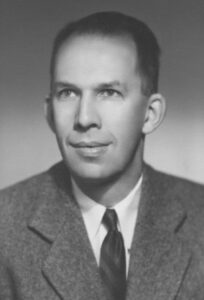
“BIG BATTLE LOOMS OVER CALIFORNIA WATER RIGHTS,” ran the headline on a Dan Walters column last month. Unfortunately, the headline could have been written anytime in the last 150 years, because water rights determine the past, present and future of farmland, people and the environment in this state. We have been battling over them since the first gold mining camps, and it’s not likely to end.
The battle Walters hears rumbling this time is between the State Water Resources Control Board and senior water rights holders along the San Joaquin River, with Westlands Water District and environmentalists (unlikely bedfellows) entering the fray. I suspect this episode is yet another attempt by the strong to harvest water rights of the weak – the low-hanging fruit, so to speak – under the guise of law, but in these battles the truths are often as subterranean as groundwater.
I think the big battle we should be undertaking is to eliminate the legal shields for the corporate agribusiness giants that make these takings possible – and almost impossible to prevent. Water is not a private commodity in this state: Water rights of any kind are for beneficial use only, not for making a profit. We are on the edge of losing that critical distinction, and that loss “will be an intolerable burden,” to use Powell’s words, for all the people of the state, not just farmers.
One of the legal shields is buried in state water law, which permits property-weighted voting in local water districts, which gives the largest landowners control over the decision-making process and thus, the water. This empowers very large absentee landowners to control vast amounts of public water for private gain, to the detriment of resident farmers, rural communities and local control.
What’s property-weighted voting? Simple: If I have 100 acres in a district, and you have 1 acre, you get 1 vote and I get 100. Or, if my property is worth $100,000,000 and yours is only worth $1,000,000, I get 100 times the number of votes you get. “You’re kidding,” said one of my highly educated friends. “That can’t be – it’s un-American!” “Ah,” I said, “don’t we wish?”
I had the good fortune to know a man who spent the last half of his career working to help us understand the implications of this incongruous fact. His name was Merrill Goodall, and he was a professor of political science at Claremont College during the 60s, 70s and 80s. He did research on the voting structures of this state’s water districts, identifying two distinct kinds: property-weighted vs. one person/one vote districts. The research, conducted with colleagues at Claremont during the early 1970s, showed that the one person/one vote districts outperformed the property-weighted districts in every way.
Goodall then worked to communicate these results to politicians, policy makers and the general public. He served on the California Water Commission during the 1980s, contributed scholarly papers to journals and letters to the editors of newspapers; he also participated in conferences, rallies, and the political arena. He took his message anywhere people might listen. But despite Merrill’s best efforts, somehow that message has yet to be heard.
I first heard about Goodall’s work in the late 1970s. It was a time of white heat, with efforts to reform federal reclamation law raging like a full-blown hurricane. At that time, Merrill’s research seemed like distant thunder, remote and only tangentially relevant. With the passage of 45 years, however, and with our current severe water shortages threatening to undo 100 years of rural development in this valley, I see it was prophetic.
Goodall was a good, modest, quiet man, thoughtfull and well-spoken, and accurate almost to a fault. But he was also relentless: He never gave up. He was still advocating for democracy when he died shortly after a bicycle accident in 2002. Fortunately, he sent me a box of relevant materials a year before he died.
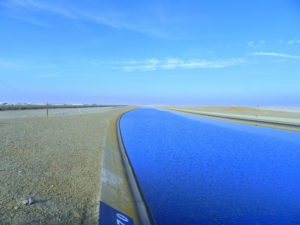
A phone call from a friend in Chico last August (2020) got me to pull down the box from its shelf. My friend had mentioned a new water district forming on 100,000 acres west of Chico. It has applied to the Butte County LAFCo with the name “Tuscan Water District” under the water district codes permitting property-weighted voting. A majority of the land within the proposed boundaries is held by two absentee corporate owners, while the vast majority of local landowners operate on smaller parcels. Forming under the water district codes, as they wish to do, would give those two absentee corporate owners total control.
However, if the district was required to form instead under the irrigation district water codes, those smaller, local owners would have a vote and voice in the district decisions, and the absentee landowners would not. So far, unfortunately, the Butte County officials have remained solidly behind the corporate owners’ plans, despite receiving detailed summaries of Goodall’s research. Unless the local farmers and townspeople can move their county officials to a different path, this new district, complete with its undemocratic voting structure, will be a done deal by mid-fall.
The issue: Two Kinds of Districts
At the 1991 California Studies Conference, Merrill Goodall described the situation in this eloquent, learned way:
“Two distinct political systems are found in rural California. One tends to be democratic in form, and the other organized by local or absentee propertied elites.”
The crux of those two broad systems is the voting structure under which decisions are made within local water districts. The more equitable of these two voting structures — one person, one vote per resident landowner — are found in districts formed under the Irrigation District water codes. The less equitable system bases the number of votes on the number of acres or their assessed valuation, i.e., “property-weighted,” and non-resident landowners are permitted to vote as well as serve on the boards of directors. Goodall sometimes referred to these districts as “undemocratic.”
This distinction — that there are two different, distinct political systems — has been overlooked by many critics of California’s industrial agriculture, who most often see only one. They see first the blatant undemocratic power wielded over water, land, laboring people, communities and our environment and think they’re seeing the whole picture. They miss the people in the middle: The small-to-moderate-sized owner/operators who live in the communities they help maintain. They miss the fact that the kind of irrigation district these farmers live within makes their existence possible.
Those critics may be forgiven, perhaps, for missing this distinction, since the smaller-scale resident farmers frequently identify with the mega-farms’ political aims, even when it works to their disadvantage. It is a phenomenon of California water politics that baffles many observers. However, “power corrupts, and absolute power corrupts absolutely,” the saying goes. With property-weighted voting (and other provisions of the California Water Code associated with these kinds of districts), absolute power is pretty much what happens.
When it comes to explanations, this undemocratic system is rationalized solely in economic terms, not political, social or moral. Proponents say “if I have a greater investment in land in this district, I should have a greater voice in how the water is used.” It doesn’t matter that that their investment in, let’s say, 10,000 acres, may be a small portion of their total wealth, but that your investment in, say, 100 acres, may be 100% of your family’s resources and every ounce of your life’s intentions. Whose stake is truly bigger is not even considered, much less debated.
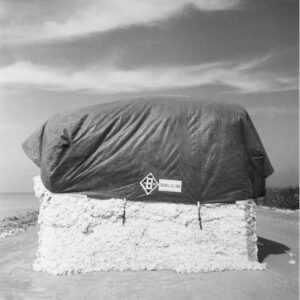
Also not considered is the community’s stake in how the water is managed. Non-farm landowners and businesses in adjacent towns have no vote or voice, not even a non-voting seat on the board of directors, despite being seriously dependent on the well-being of the surrounding farms. Landless members of the community (i.e., not “freeholders,”) who are often more affected by what crops are grown and how the land is managed than even the farmers, also have no vote or voice. This is true in both kinds of district. But in property-weighted districts, when the largest vote holders frequently are also absentee, they don’t have to hear the voices of the people who will be most impacted by their decisions. They don’t have to watch the impacts occur, much less bear them. They can just sit in their comfy Bel Aire offices and watch the Dow fluctuate. They don’t have to see the dust blow through your house, or feel your pain as you pack up what little you own to find a different job and another place to live.
This political structure was bad even back in the good old rainy days. One of Goodall’s favorite examples of community impact was from the flood of 1969. The board of the Tulare Lake Basin Water Storage District (a property-weighted district) voted to flood certain lands and not others, advantaging J.G. Boswell, the majority vote-holder. The home of one landless Basin resident ended up 15.5’ under water. J.G. even flooded out the cropland of his brother Billy, who exclaimed, “You flooded me out,” to which J.G. replied, “Well yeah, my levee’s higher than yours. I guess I did.”
These facts came to light when the other large landowner, Salyer Land Co., sued the district all the way to the U.S. Supreme Court, challenging the voting system. The conservative court decided in favor of property-weighted voting, which prompted Justice William O. Douglas to issue a scathing dissent, declaring “The result is a corporate political kingdom undreamed of by those who wrote our Constitution.”
It is my opinion that the time has come to challenge this undemocratic system again. Since the advent of water marketing and water transfers in the 1990s and the massive overdraft of groundwater which exploded during our last drought (2013-2016), the political dominance of this voting structure over water decisions cannot be allowed to continue. And I believe we can change it.
One Solution: Revocation of Property-Weighted Voting.
One of Goodall’s primary points is that property-weighted voting, despite the fact that it has become embedded in California water code, can be eliminated:
“The state legislature can legally change the voting method since the method was itself created by the legislature,” he wrote in his 1993 proposal to the California Democratic Party to include support for the “one person-one vote principle” in water district elections as part its platform.
“Today,” he told the Democrats in 1993, “such property-weighted electoral districts contract for 90% of the State Water Project’s deliveries to the San Joaquin Valley. Another of the property-weighted districts, Westlands, contracts for more than three-fourths of all Federal Central Valley Project water…. When landowners control a water district which has a legal monopoly on the development and sales of water resources, the potential for abuse to the landowners’ benefit is enormous…. The California Democratic Party platform should state explicitly its support of the one person-one vote principle in water district elections.”
We might consider again working to have the Democratic Party include this issue in its platform. Goodall also made the case that property-weighted voting is inherently unconstitutional at the state level. Citing our state constitution, he wrote
“Article 1, section 7(b) reads: ‘A citizen or class of citizens may not be granted privileges or immunities not granted on the same terms to all citizens. Privileges or immunities granted by the legislature may be altered or revoked.’ Additionally, he noted that, “Article 1, section 22, of the California Constitution reads: ‘The right to vote or hold office may not be conditioned by property qualification.’”
This section of our state constitution raises the question whether property ownership can be a requirement for voting and/or participation in the board of directors, a provision that now exists in the water codes governing both kinds of districts. These portions of the water code also could be changed legislatively.
There may also be court cases to pursue. In his dissenting opinion in Salyer, Justice Douglas contradicted the majority’s reasoning for support of property-weighted voting. The majority opinion declared that the water storage district’s sole function, and thus its sole impact, is to benefit the land held by landholders. Douglas disagreed, noting that the benefits were not equally distributed, nor the costs, and laid these problems at the feet of property-weighted voting.
“There are 189 landowners who own up to 80 acres each,” Douglas wrote, noting their lack of voting power. Additionally, “almost all of the 77 residents of the district are disenfranchised. The hold of J.G. Boswell Co. is so strong that there has been no election since 1947, making little point of the provision in section 41300 of the California Water Code for an election every other year. The result has been calamitous to some who, though landless, have even more to fear from floods than the ephemeral corporation.”
Justice Douglas continued:
“Landowners — large or small, resident or nonresident, lessees or landlords, sharecroppers or owners — all should have a say. But irrigation, water storage, the building of levees, and flood control, implicate the entire community. All residents of the district must be granted the franchise (to vote.)”
Justice Douglas’s opinion, in fact, also challenges the notion of “property qualification” for voting and participation on districts’ boards of directors. In 1976, three years after Douglas’s dissent, property qualification was challenged in the Imperial Irrigation District by a non-landowning resident, registered voter who wanted to run for the board of directors. In Choudhry v. Free, the California Supreme Court decided against property qualification:
“In our view, the pervasive powers exercised by this irrigation district over all residents within its vast area, whether or not they are landowners, are such that neither the right to vote nor the right to serve as a director may be confined to freeholders. In a virtually unbroken line of recent decisions, the United States Supreme Court has struck down statutes requiring property qualifications for voting in special purpose districts. The sole exception to this trend (is) Salyer Land Co. v. Tulare Water District (1973)….”
This court did not decide, however, whether property qualification for voting and board participation violates section 22 of article I of the California Constitution (quoted above.) It left that for future courts to decide.
The Means: Public Interest
I don’t know whether the third branch of government — the executive — has any power here; others more knowledgeable than I might see an opening. But I do know there’s a public component that every person reading this can wield: your attention. What you have to bring to bear on this problem is yourself — your willingness to listen and take in what you hear, your ability to ask questions and ponder the answers, your courage to tolerate chaos until comprehension starts to form.
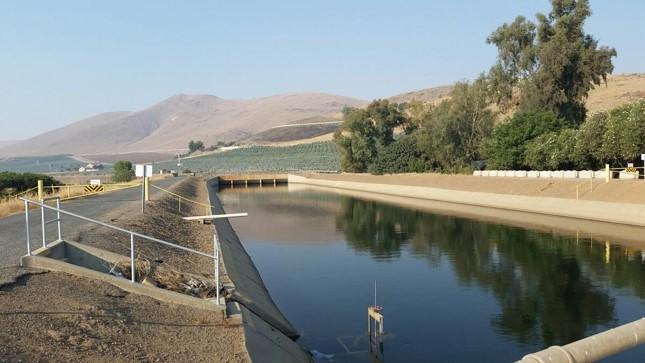
This point was brought home to me this week by Mark Arax’s most recent article, “The Well Fixer’s Warning,” published in The Atlantic on Aug. 17th. It is subtitled “The lesson that California never learns,” a damning truth.
It’s the well-fixer’s story, at first: Matt Angell, owner of Madera Pumps and an almond/grape grower whose son now runs their 200-acre farm, is going public with what he’s seeing. It’s grim, looking down the drying-up wells and broken pumps splayed all over his county and beyond.
“Every well we work on, we’re measuring the standing water level. If I can get a farmer to listen, I tell him we can’t keep on doing this. It’s not going to last. Another dam won’t solve this. Another flood won’t solve this.”
Matt’s own well, Arax wrote, “has begun to surge and groan. He could hear in its death rattle a whole community.” Arax ended:
“The only solution he could muster – and it won’t go down easily – was for valley farmers, in the name of community, to figure out a way to retire 1 million acres of the 6 million farmed in the San Joaquin. A first step toward soundness. ‘Otherwise, we’re looking at a race to the bottom,’” he said.
And here is where I really want to bring your attention. The lesson we Californians haven’t learned is that there are two kinds of agriculture in this valley, supported by “two distinct political systems,” and one of them has to go. Those people who can see what we need to do “in the name of community,” for the good of the state and the survival of farming — those are the people we need to keep. Those are the people we don’t want to retire their land. The people who cannot even imagine community, much less make sacrifices for the good of the whole — the corporate investors, the large landholders, the people in it to make a killing, not a living — those are the people whose lands need to dry up, whose grasp on water needs to be taken away — soon. But how?
In 1991, giving the keynote address to the conference “Water in California Agriculture: Technology, Politics, People,” Merrill Goodall, this good, modest, quiet Claremont professor, told us how to proceed. After listing a small handful of possible improvements in the policy arena, accomplishments that might or might not come to pass, he said:
“Now, what are we left with? It seems to me that you don’t give up; you follow the dictum of Joe Hill, who told us to go on, and organize…. Family farming may be an endangered species, but that practice has important allies, the labor movement for one. In the 1930’s, 40’s and 50’s, the basic political support for family farming in this state came from the Central Labor Councils in Oakland, in San Francisco, and the statewide AFL-CIO. It came also from the religious community, and not only from mainstream denominations. And it came from many ordinary residents of our urban communities. So what to do? You go on and you organize.”
May they soon hear our thunder in Sacramento.
Trudy Wischemann is a writer/researcher on land, water and communities. She writes a weekly column called “Notes from Home” for the Sun-Gazette, which admirably serves the citrus-belt towns of Tulare County (www.thesungazette.com). She is also finishing the compilation of a book of writings on Agriculture and the Common Good, forthcoming from West of West Books. A footnoted version of this paper is available from her at: [email protected].

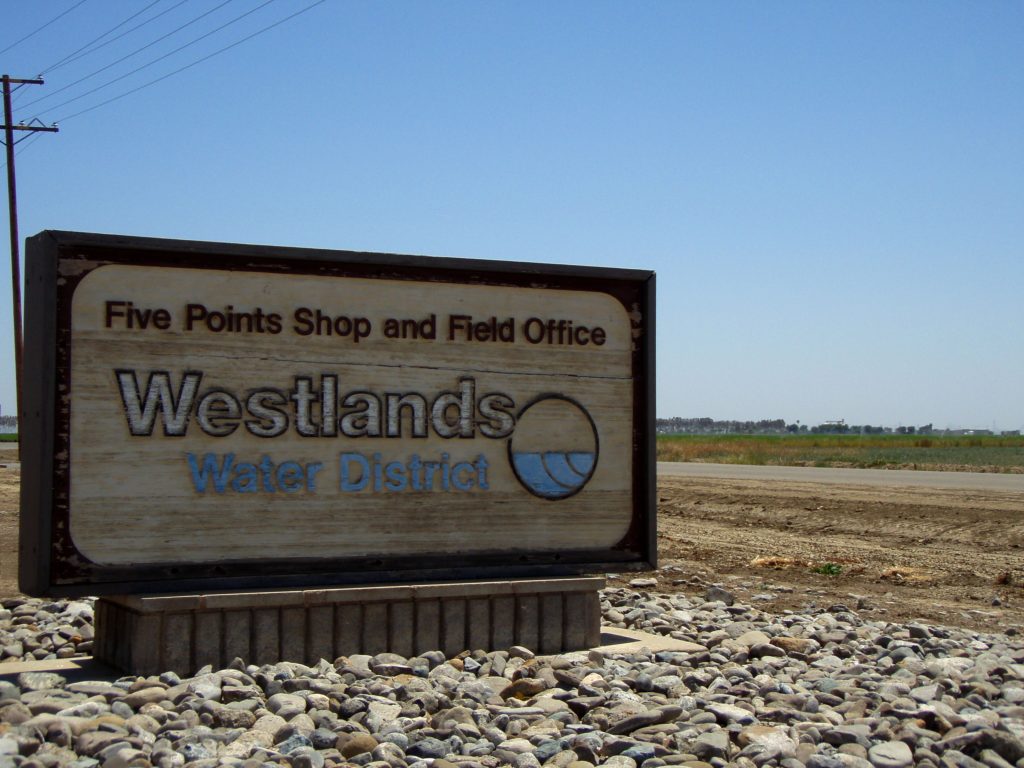
Wow, this article is quite lengthy and long. Skimmed most of it, but it basically comes down to- the wells in this region will all run dry sometime in our lifetime. One conclusion I saw towards the end was to retire 1 million acres of farm land. This is somewhat happening slowly, as communities in this area allow more housing to be built (Manteca plans on tripling the size of it city population by 300% in the next 10 years). But, then I wonder, where are they going to get the water. Seems to me that we need more fresh water. Desalination plants should be plentiful on the California Coast line, plus increased capacity for Dams during wet years. 80% of the rain fall every year goes back into the ocean….. and better water management is key as well- A question- is it better for a farm to produce crops or nuts- which uses more water?
Great article. Lots of new information. Well written.
Excellent article. The early part of my professional life in the 70s and 80s was working for a large farming company in southern San Joaquin Valley owned by an oil company. Drilling wells 1000 feet deep to replace older wells that were 300 feet deep was common. During wetter years, the company implemented a groundwater recharging program in an effort to maintain the aquifer groundwater level. However, it was know that it was just a band aid since the static ground water level continued to decline and subsidence begun to occur. Some of that land on the eastern side of the valley has now gone back to dry farming. I am afraid that that scenario will be common in many parts of the valley in the coming years. The farming company was just and investment by the oil company. The farming company was sold by oil company when they realized that in the long term the investment was not good.
Water use in California is primarily FOR PROFIT. We have agriculture, we have bottled water and beverage plants, cars washes, manufacturing plants, canneries, all needing water to operate.
To eliminate all existing water rights would destroy California’s economy. The entire economy is based on the structure of those rights.
Looking for ways to make the water rights system more equitable is a noble goal, but not easy in the face of chronic shortage. Better to focus the effort on increasing the available supply via production, recycling, and conservation efforts.
Private purchase of water solely for speculation purposes should be stopped as the practice tends to promote unwise choices for use. For example, shipping water to the driest desert in the state for urban development seems less worthwhile than for food production. Speculation forces water costs up for everyone, not a social benefit.
The people who cannot even imagine community, much less make sacrifices for the good of the whole — the corporate investors, the large landholders, the people in it to make a killing, not a living — those are the people whose lands need to dry up, whose grasp on water needs to be taken away — soon.
LOVE IT…
Tax or BAN the ground water pumping of the the non owner occupied farms…
Thank you, all of you, for reading this piece! Today it will be submitted (again) to the Butte County Board of Supervisors in the effort to get them to rescind their support for the Tuscan Water District. It would be a first block of property-weighted voting, I think. But if not, the effort to repeal these water codes that permit corporate absentee landowners to make a killing not just from farming but from hawking their shadily-obtained water supplies – that effort needs to start. Some people in Fresno are considering that. Keep your eyes on the prize. Trudy
Trudy, you are such a change agent, thank you from the bottom of hearts.
I am a late comer to your post. You may not view this reply.
You are in my prayers, never the less. Keeping my eyes on the prize is numero uno.
Any word on the Butte County Board of Supervisors’ decision to rescind?
Never been condoning of absentee land owners of any kind. Too easy to turn a blind eye, or pretend they see nothing wrong with much anything, oh but let someone hold them accountable, or try to get them to account, and suddenly they think they know everything. Corrupt speculators.
The Butte County Board of Supervisors voted to recommend the formation of the proposed Tuscan Water District with its property-weighted voting so the final decision is now before the Local Agency Formation Commission (LAFCo). People who learn of this proposed district continue to be surprised by the anti democratic structure where the majority of residents in the district (who are domestic well users) are to be represented by a single elected board member.